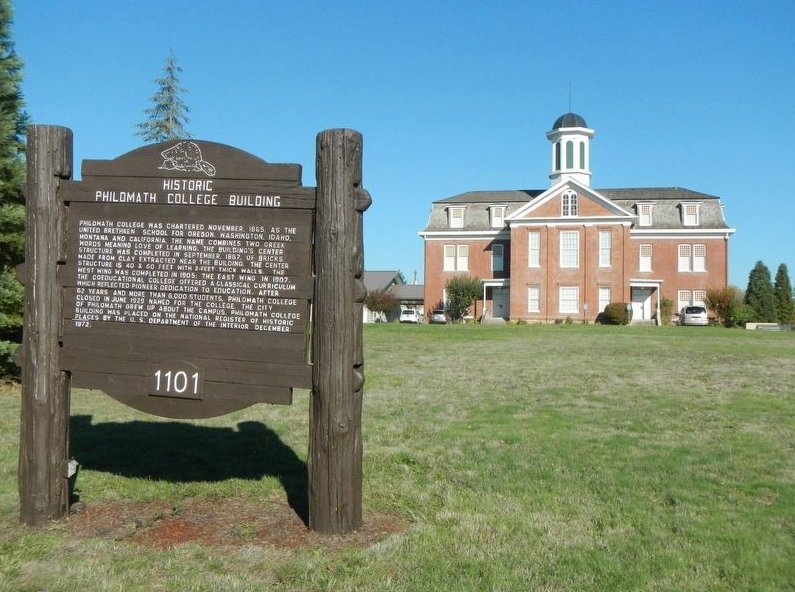You hear about these things and I guess you never fully understand it until it happens to you. Recently, I was half listening to a podcast and the term ‘philomath’ came up. They pronounced it like ‘phyllo math’ and they proclaimed that it was a combination of two Greek words that mean love of learning.

I was born in Corvallis Oregon. About five miles to the west is the town of Philomath Oregon (we pronounce it as fil-lo-math). It was the town that you drove through on the way to the coast. It was known as a timber town that the police liked to issue speeding tickets (because there was no reason to stop). It was also known as a town that has an endowment for any graduating senior to get a full scholarship to Oregon Statue University. It has since been modified to any student that want’s to study Forestry at OSU.
In the last twenty years, the town’s growth has been significant. Despite the fact that most of the mills were shuttered in the 1990s, population is rapidly growing. The reason is that the land cost and tax structure are significantly advantageous to living in nearby Corvallis.
Back in my day… my impression of Philomath was a redneck town. There were logger taverns and run down buildings. This was the definition of working class, mill town that you wouldn’t want to be after dark, if you weren’t from there. Of course that was my ignorance, I have no idea if that is actually true but I am painting an impression of my feelings.
There was a tavern called The Woodsman which used to be the first thing you see as you enter town from the west. I have never been there but I am pretty sure this was one of those places that was open as long as it was legal (7a-2a in Oregon) and served my regional favorite beers like Rainier, Olympia, Blitz-Wienhard and Hamm’s. A little over twenty years ago it became a locally regarded Thai restaurant.
I had always assumed that the name was native American. There are so many names that are like Tillamook, Alsea, Siletz, Neskowin, Calapooia or Willamette to name a few. I just told you that we never stopped (so I never read the sign in the picture). When they were talking about it on the podcast I realized what I thought I knew was nothing of the sorts. It is actually of Greek origin, not native.
I consider myself a critical thinker. I make efforts to analyze information and make a rational decision from my analysis. I suppose that doesn’t apply to things that you always knew as true. What’s even worse is that there is a sign describing the name in the middle of town. The information is publicly visible and has been my whole life, I have never looked at it.
This happens to be a simple issue that really doesn’t matter. This could be why I was open to evaluating it and realizing my error. I think the danger is for items that are highly charged and the actual data is suspect. Those things that we always knew, supported by lies lead us to false realities.
The human mind is a funny thing. When I was taking criminology class I learned that one of the reasons suspects/witnesses are separated is because one individual can influence another and people can ‘remember’ things that they did not see. We want the story as unbiased as possible looking for inconsistencies between the individual stories. Someone will compile all the different stories into a theory and then potentially test that theory in court.
End Your Programming Routine: I am not saying that I am a great man or a great mind. People have fallibilities and that is a fact. Of course some are more flawed than others and it is a matter of perspective on what is worse or not. This is our inherent human bias. My whole point is be careful of what you know to be true because you might just find out you were wrong all along.
Recent Comments